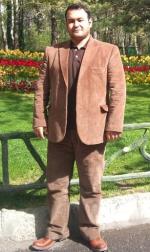Deconstructive Approaches to Teaching Literature
Teaching Deconstruction1
In all the literature written over the last twenty or thirty years concerning deconstruction as a philosophical or literary-critical practice, relatively little concerted attention has been devoted directly to the question of deconstruction and teaching, or, to go further, deconstruction as teaching, as perhaps a teaching. In one respect this is unsurprising, since it has often been the case that “deconstruction” has been presented and defended by its best proponents as neither a traditionally constituted philosophical system tending toward its own coherence and closure, nor an easily reproducible, stabilizable method of inquiry or analysis, nor a readily communicable or transposable “object” of cognition. As is well known, rather involved and complicated discussions have abounded in the critical attention paid to the writings of Jacques Derrida concerning the strongly complexified status, for deconstruction, of the “concept” and the “example,” of the relation of the particular to the universal, of transcendentality, singularity, iterability, repeatability, communicability, and so forth. Thus, the usual instruments of learning and teaching, and indeed many of the methods and assumptions underlying them, seem so thoroughly brought into question by deconstruction itself that it is no easy matter to explain how deconstruction might actually determine itself pedagogically, although undoubtedly in an obvious sense “deconstruction” is taught all the time.
Jacques Derrida on Deconstruction & Teaching
Derrida himself has written directly at some length on the question of teaching, although insights into Derrida’s thoughts about how to teach deconstruction itself — if indeed any such thing were possible — are perhaps to be considered rare. Alongside the comments we have already looked at in Given Time (which, although they deal in some manner with quite wide-ranging questions surrounding the issue of teaching, nevertheless fall well short of a statement of deconstruction’s general relationship to pedagogy in all its forms), those pursuing the question of deconstruction and pedagogy might find a starting (and perhaps a stalling) point in the opening section of “The Double Session,” with “quotations on the blackboard … pointed to in silence” (177). Alternatively, some discussion in “Living On: Borderlines” concerns the topic of the institution, language, and teaching (92–94). One might also turn to Derrida’s various analyses of the thought of Hegel, Nietzsche, and Heidegger in its relationship to pedagogy and to educational institutions, particularly where questions of the language, politics, and thinking of nationality and nationalism are concerned. And in wider terms, of course, it should be recognized that a fairly constant interest in the university and in the institutional context of deconstruction itself runs throughout Derrida’s writings, culminating most obviously in essays such as “Mochlos” and “The Principle of Reason”.
Teaching Deconstruction & Cultural Discourse
Nevertheless, amid these various writings, some of them clearly strategic or pragmatic in design, it remains possible to say that a clear and fully sustained statement on deconstruction’s actual relation to teaching has still not readily been forthcoming. Is this responsible or irresponsible, on Derrida’s part? I think one can hypothesize that this situation may provide a way for Derridean deconstruction to experience more fully fundamental problems and questions associated with teaching itself. That is to say, the performative dimension of teaching as an event in Derrida’s work (as well as of writing and of speaking) allows deconstruction to assume rather than simply declare or resolve the pedagogical issues and problems with which it must necessarily concern itself. This happens, in the texts, so as to engage issues of culture, community, communicability, and belonging, on condition of which academic and cultural discourse may well take place, today or in the past, but also according to which it may experience certain de- or trans-formations within the university that remains.
1. The whole words of this essay come from Simon Morgan Wortham’s essay.
Works Cited
Wortham, Simon Morgan. “Teaching Deconstruction: Giving, Taking, Leaving, Belonging, and the Remains of theUniversity”. Diacritics / fall 2001 31.3: 89–107.
Submitted by: Seyyed Shahabeddin Sadati

 سید شهاب الدین ساداتی
سید شهاب الدین ساداتی